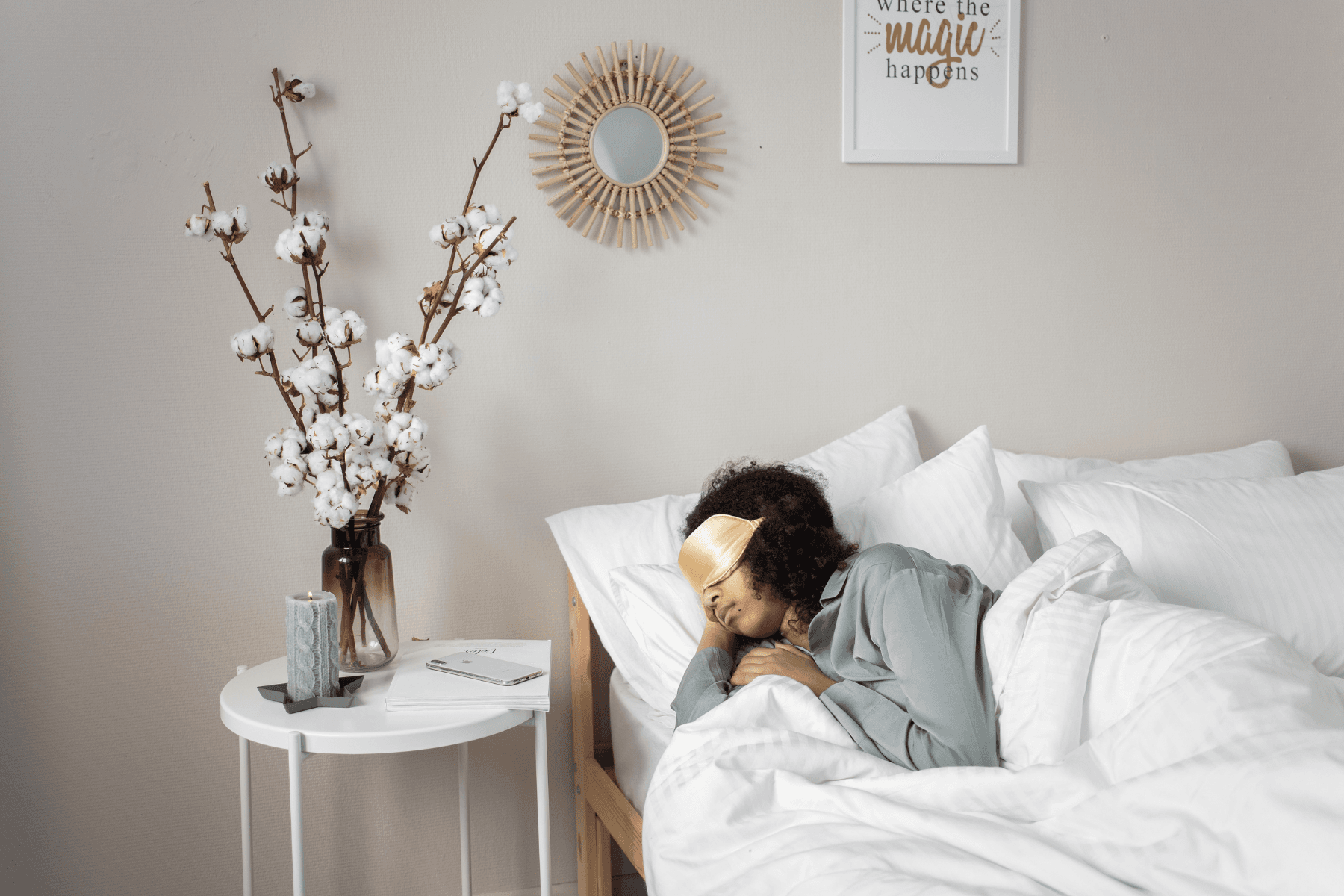Sleep Hygiene: The Gentle Way to Support Better Sleep

*By Louise Buckingham *
If sleep has become something you dread or struggle with, you’re not alone. Many people try to “push through” exhaustion, but the real solution is learning to support your body and nervous system with intention.
Sleep hygiene is not about following strict rules. It’s about creating an emotional and physical rhythm that permits your body to rest.
At Happio, we help you rebuild that rhythm gently. With calming tools, evening reflections, and therapist-informed routines, you’ll begin to sleep more easily and wake up with more clarity and energy.
1. Create a wind-down hour you look forward to
Your body needs time to shift from stimulation to rest. We recommend starting your wind-down at least 30–60 minutes before bed. This doesn’t have to be rigid, just reliable.
Think of it as your daily ritual of slowing down.
Try this sequence using Happio tools:
- Open your evening journal and complete one short prompt to release lingering tension
- Play Delta Drift, a calming delta wave track that cues your body into a state of deep rest
- Use the Sleepy Beach visualisation to slow your thinking with gentle imagery, soft waves, warm sand, and steady rhythm. . This combination of sound, story, and self-reflection gives your mind and body something predictable to anchor to, precisely what sleep needs.
2. Move your body during the day, rest it at night
Daytime movement helps regulate your sleep–wake cycle. If your body hasn’t burned much energy or shifted out of stress mode, falling asleep can feel harder, even if you feel tired.
You don’t need intense exercise. A walk, a stretch, or mindful movement is enough to send the message:
“We’re using energy now so that we can rest later.”
Use the Happio Fatigue Plan to track your movement and energy levels, and notice how daily activity affects your sleep that night.
3. Watch what you consume, especially after midday
Caffeine and alcohol both impact sleep, even if they don’t seem to.
Caffeine can stay in your system for up to 8 hours, quietly keeping your nervous system alert. Alcohol might make you feel sleepy, but it disrupts the deep stages of sleep, often causing early waking or fragmented rest.
We recommend:
- Avoiding caffeine after midday
- Limiting alcohol in the evenings
- Hydrating earlier in the day to reduce wake-ups later
These minor adjustments help your body settle into more profound, restorative sleep at night.
4. Protect your wind-down from tech
Scrolling in bed feels passive, but it’s not restful. Bright screens and unpredictable notifications can prevent your brain from producing melatonin, the hormone that cues sleep.
Rather than relying on your phone to unwind, create a tech-free zone for the hour before bed.
Try instead:
- Listening to Delta Drift or Summer’s Rain in the background
- Doing a short reflective journal entry
- Letting the Sleepy Beach visualisation guide your thoughts toward calm, predictable imagery
If you must use your phone, enable Night Shift or Warm Light Mode, and avoid news, emails, or anything emotionally stimulating.
5. Keep naps short and consistent
Napping during the day can be helpful, but prolonged or late naps can throw off your body clock. If you’ll nap, keep it under 30 minutes and avoid napping in the late afternoon or evening.
Instead, if you feel depleted during the day, try a calming Self-Care Hub soundscape and a short reflection in your journal. Often, what we need is a mental rest, not sleep itself.
6. Use your bed only for rest
Over time, your brain creates associations with your environment. Using your bed to scroll, work, or worry no longer signals sleep.
We recommend using your bed only for sleep and intimacy. If you’re not sleepy after 20–30 minutes, get up and do something calming, then return when your body feels ready.
Try:
- A few minutes of the Sleepy Beach visualisation
- A second round of journaling to clear any leftover thoughts
- Replaying Delta Drift to help you soften back into rest
This resets your sleep space and keeps your brain-body connection clear and responsive.
7. Focus on rhythm, not perfection
Your nervous system thrives on consistency. Waking up and going to bed simultaneously, even on weekends, helps restore your circadian rhythm, making it easier to fall asleep and wake up with energy.
Inside the Happio Fatigue Plan, you can track your sleep patterns, identify triggers, and build a reliable bedtime rhythm. The goal isn’t discipline, it’s support. You’re learning to care for your system, how it works, not how it “should.”
Final Thought
You don’t need to earn your rest. You don’t need to fix your sleep with willpower. You just need to show up for your evenings with curiosity and care, and build a bedtime routine that your body recognises, trusts, and eventually relaxes into.
Start rebuilding your sleep routine, gently.
The Happio 4-week Fatigue Plan includes:
- Calming audio like Delta Drift and Summer’s Rain
- Guided visualisations such as Sleepy Beach
- Daily reflections to release emotional tension
- Practical habits that support deeper, more natural rest
- No pressure. Just progress. One restful night at a time.